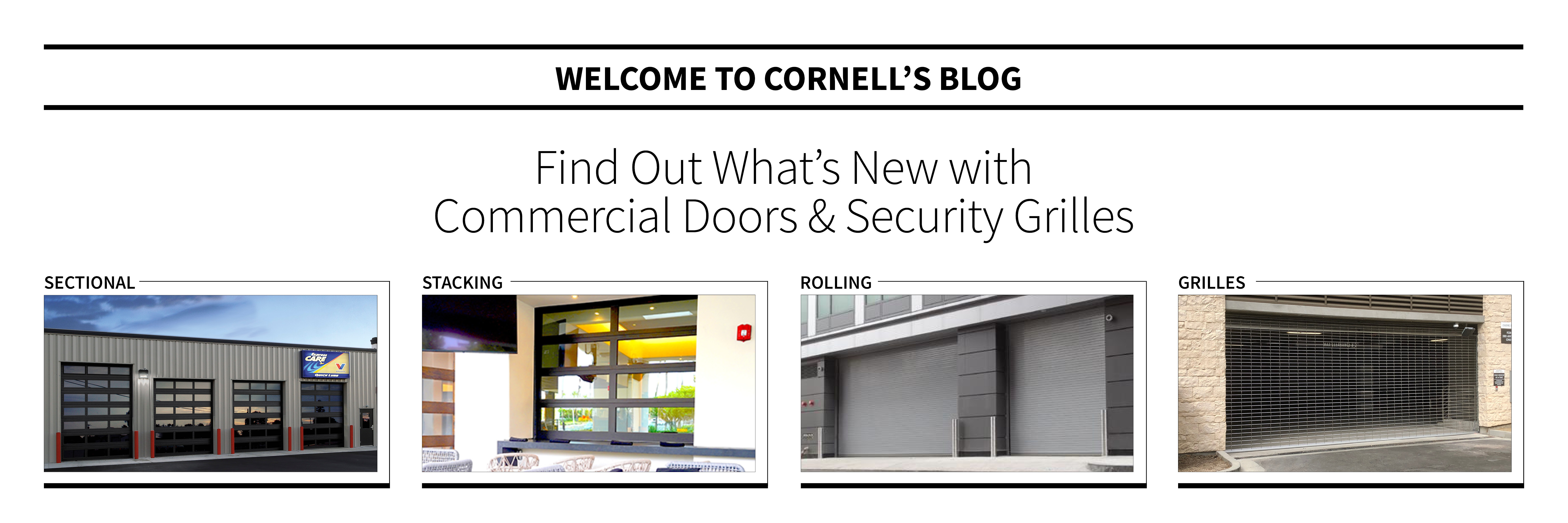

Cornell Commercial Rolling Doors and Security Grilles Blog
When it comes to Overhead Rolling Doors and Grilles, we are the experts in innovative door solutions!
Subscribe
Get updates on new blog posts to your inbox!
6 Considerations When Choosing a Rolling Door | Cornell Iron
Talk About Safety for All Rolling Garage Doors
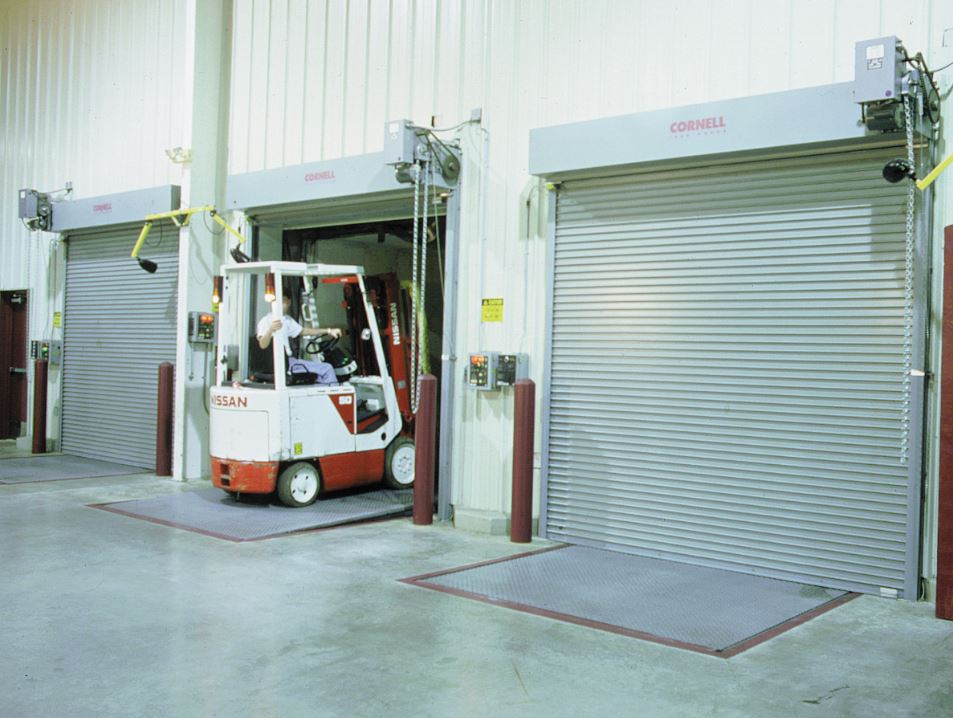
Clink, clink, clink….crash! Not a very welcoming sound for anyone, especially the 20,000 to 30,000 people who are involved in garage door accidents every year according to NEISS. From concussions and bruises to pinched joints, fractures and even death, a garage door is not a product that should be used as a toy or taken lightly.
Door safety is typically discussed in the context of residential garage doors. All garage doors, including industrial and commercial rolling doors, should also be on the list of safety discussion points.
Residential garage doors can pose threats in homes and neighborhoods, just as industrial garage doors can in manufacturing, distribution and other larger, industrial facilities. They are bigger and heavier than the doors you see throughout your neighborhoods. Commercial garage doors also contend with a lot more use and traffic than a garage door at your home, making safety an even more significant issue. The kind of traffic matters here too – instead of simply cars and trucks, commercial garage doors also see forklifts with heavy loads and tractor trailers, as well as other industrial vehicles and equipment.
To ensure the safe operation of commercial garage doors in your facility, check out our tips below.
Tip #1: Select the Best Commercial Garage Door for Your Application.
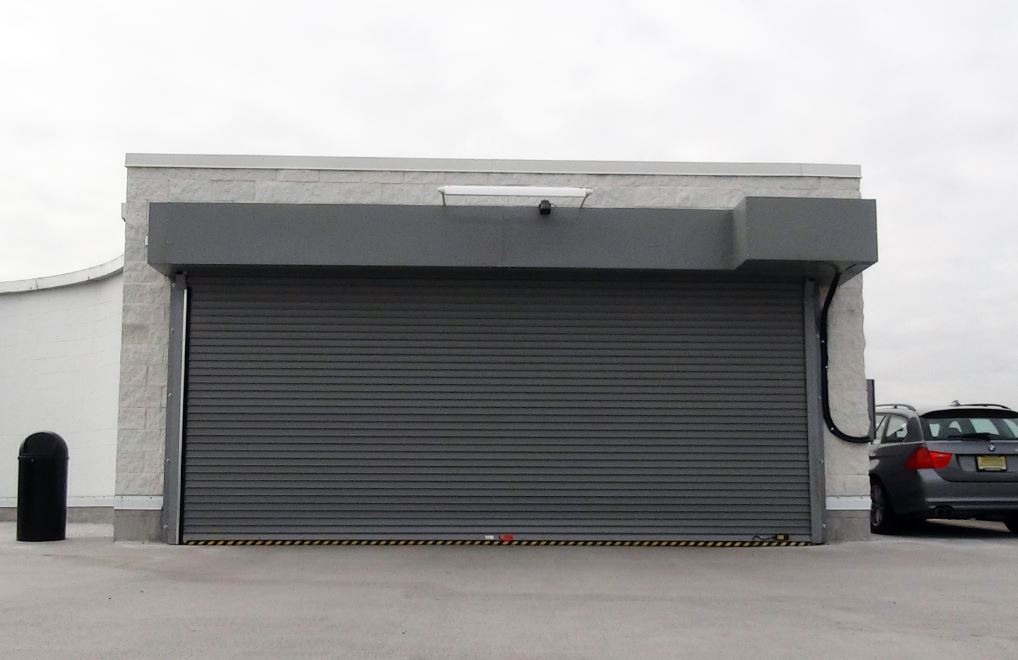
The first step in commercial garage door safety lies in choosing the correct commercial garage door. This includes proper installation and maintenance. The most common dilemma facilities face is the one between sectional doors or overhead roll up/coiling doors, detailed below:
- Sectional doors: usually manufactured in 24” hinged-together sections. These sections are moved via tracks up and above the opening of the door. Sectional doors can also move up and horizontally above the floor space in the guides if there isn’t enough headroom above the door.
Maintenance of a sectional door can be more labor intensive than maintenance of an overhead roll up door. Sectional doors are not as well protected and require more upkeep for their 30 – 40 parts, which also need regular lubrication. If this does not happen or the sectional door is exposed often to the elements, it can rust or corrode. While sectional doors may be lighter and more budget-friendly than overhead roll up doors, they also have less durable metal and can cost more in maintenance and repairs throughout their life.
- Overhead roll up doors: usually manufactured in 2” – 3” of interlocking, heavier-gauge slats that coil above the door opening around a drum in a compact area. They do not block or obstruct ceiling equipment and take up less space in the headroom.
An overhead roll up door has more durability because of its stronger gauge steel and smaller interlocking slats. All parts of an overhead roll up door are typically protected from outside damage because they coil up into a more protected space. Overhead roll up doors can be repaired on site rather than waiting for replacement parts to arrive.
It’s important to recognize that any type of garage door can encounter damage. Whether it’s from equipment like trucks and forklifts or from people, door damage can be costly. Commercial doors can also cause destruction themselves, from freefalls and destruction of equipment to employee injuries.
Tip #2: Consider High Performance Rolling Doors.
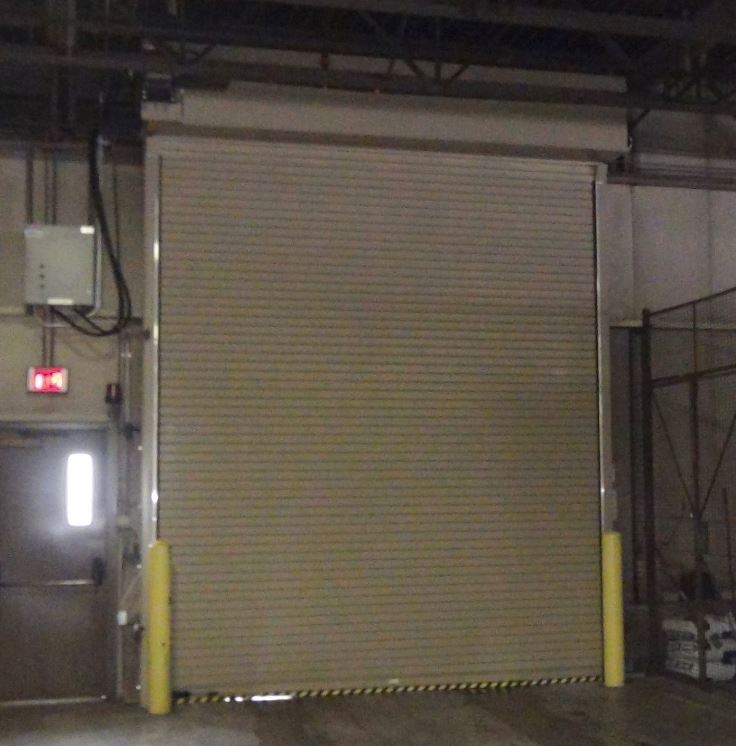
Rolling doors have come a long way since their inception. They’ve been improved to create safer, higher performance options that can withstand more cycles and prevent damage. In the case of increased traffic flow, high performance doors allow for faster speeds and reduce frustration and impatience when one is waiting for a door to open or close.
Just like with standard rolling doors, high performance doors should be inspected and kept up to alleviate safety or part failure issues. While a standard door may require a significant amount of maintenance and repairs over time as well as lengthy inspections, a high performance door needs a quick once over every day and little else.
Most parts in overhead rolling doors are stored in a coil above the door. In a high performance door, there are fewer parts to worry about with its springless design. Concerns about smaller spaces vanish with high performance doors because they easily fit into compact spaces. They also have inherent safety brakes because of inertia, reducing the risk of freefalling.
Another way high performance doors can assist with increased safety is through 6-foot light curtains, which provide a larger protection zone than single photo eye beams for anyone or anything that may be in the path of the opening. These doors also utilize smart controllers with more intelligent settings for maneuvering the door and evaluating issues or errors in real time.
View Our High Performance Doors
Tip #3: Free Fallin'? Not here!
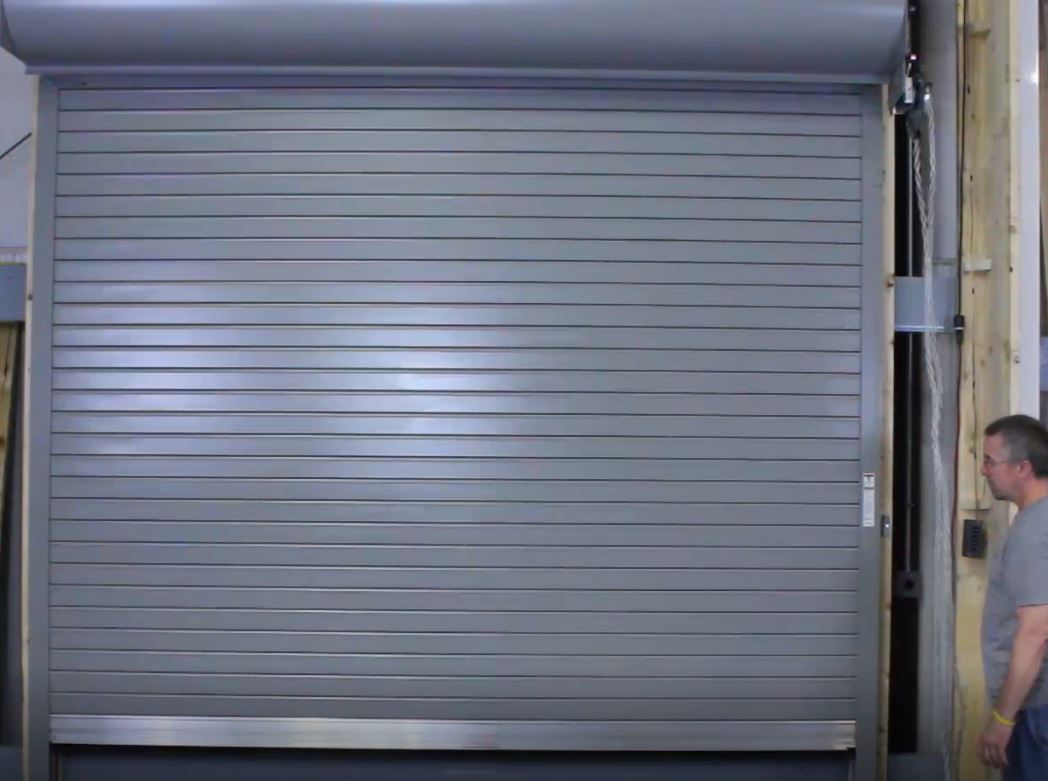
We all know the major injuries that can occur with a free falling commercial garage door.
Many times, it’s believed that a motorized operator can control and prevent free fall, but this is not always available or warranted for every type of door. If a garage door is not motorized, ways of opening include chain, hand crank, or push up options.
In non-motorized doors, chain hoists are very common. However, hoists can pose risks because rolling service doors are made with heavier gauge steel for durability, which also means the doors are heavier than an average garage door. Pulling the chain hoist quickly can be a recipe for disaster – a heavy door can crash down to the floor, possibly injuring people, and damaging equipment and the door itself.
Our ControlGard chain operator can be a better alternative than the chain hoist option for opening and closing doors. With an easy flowing manual chain system and integral braking system, it takes minimal effort to control opening and closing. The ControlGard chain operator also prevents doors closing too quickly and unruly chains from damaging people or property.
Tip #4: Watch Out for Forklifts!
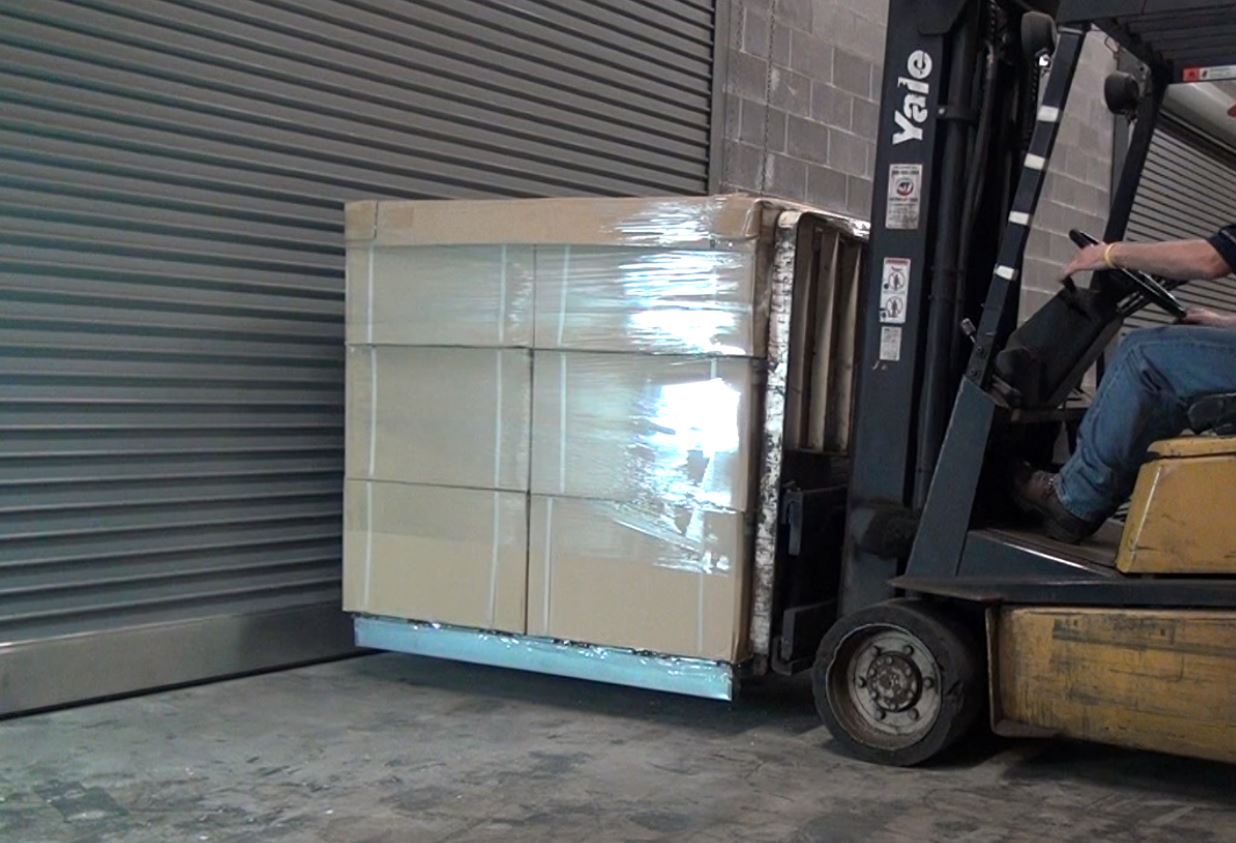
There were more than 7,000 nonfatal injuries with days away from work involving forklifts from 2011 to 2017, according to the U.S. Bureau of Labor Statistics. With the average forklift weighing about 9,000 pounds, it’s no surprise that they can cause serious destruction. Combine the weight with the fact that forklift loads are in front of the driver, partially obstructing their view at times, and there’s an understandable progression to a dented or broken commercial garage door. A door that isn’t functioning properly can stretch beyond a mild annoyance and venture into more door damage and injuries if not taken care of promptly.
You can protect your doors from forklift damage by installing a heavy-duty bottom bar. It is a taller option, adding 4 inches and more strength than a traditional bottom bar. A heavy-duty bottom bar will deflect impacts and bounce back into shape after being hit. It also keeps its shape thanks to durable construction and heavy duty guide tabs.
Replacing traditional bottom bars can be costly and leave your door out of commission for an extended period of time. While a heavy-duty bottom bar may be more expensive at first, the investment is worth it after the first impact – no more waiting on repairs or for your door to be up and running.
While it’s obvious that heavy forklifts often smash into the bottom of commercial garage doors, one place that isn’t as apparent is above the forklift’s load or in the ceiling headroom. When transporting tall freight, forklift operators may forget to look up and check for clearance. This can damage sectional garage doors, especially if they move into the ceiling headroom when the door is open.
Forklifts can damage coiling doors, too. With tall loads, a forklift may bump the head of a roll up door with enough force to severely damage it – meaning you have even more repairs and replacements to worry about while the door is out of order. Just as the heavy-duty bottom bar provide protection, a rolling door protector at the top of your door can do the same. It also deflects the force of impact and bounces back to its original position when hit. If the door protector is involved in a serious collision, it is easier to replace than switching to an entirely new door, and keeps the door functioning.
Tip #5: Look into Quicker Repair Options
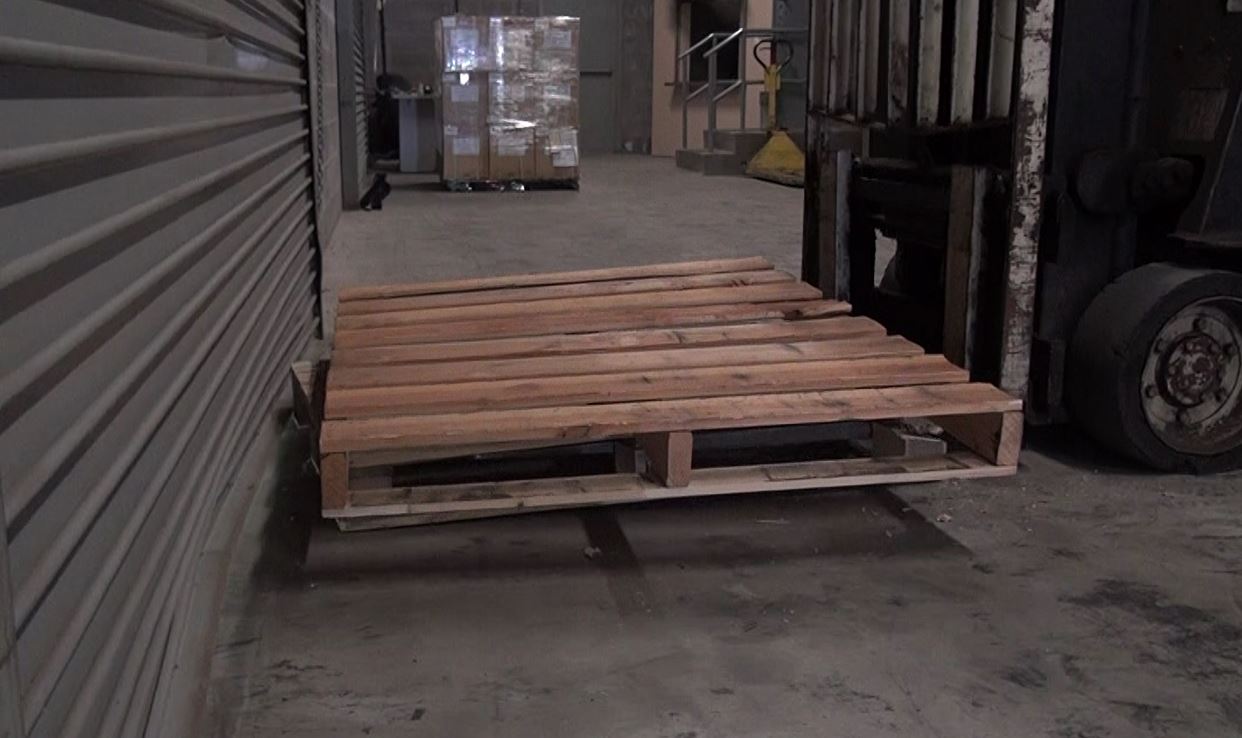
Even with safety measures and precautions in place, damages to your commercial door and facility are bound to happen. The ability to repair a damaged door quickly can translate into significant savings for your business.
Consider steel rolling doors with our RapidResponse option. The bottom bar can be removed on a damaged door along with any dented door slats. The curtain contains extra slats for this reason. To use them, simply roll down the door curtain to the desired length and then reattach the bottom bar and guides.
RapidResponse allows you to avoid wait times on new parts and repairs while helping add money back into your yearly repair budget. A door with RapidResponse may be an investment, but it can pay for itself within one year and significantly lower your maintenance and repair costs. If your facility is constantly humming with the energy of moving people and equipment with lots of high traffic areas, adding on the RapidResponse option is a huge benefit.
Tip #6: Always Inspect Damaged Overhead Doors
Damaged overhead doors should always be inspected for issues after an incident. It’s better to be safe and identify a problem immediately after an accident rather than waiting to find out if something is wrong. Scheduled inspection schedules are provided by all major commercial garage door dealers to help you detect problems.
Reach out today to learn more about any of our garage door safety products or for assistance with your current or a damaged commercial garage door.

Cornell is the industry leading rolling door, security grille and closure product experts since 1828. To inquire how Cornell's long history of innovation and customer service can help you with your next rolling door project, call 1-800-233-8366 or contact us online today!
Contact Us Find a Dealer Today





